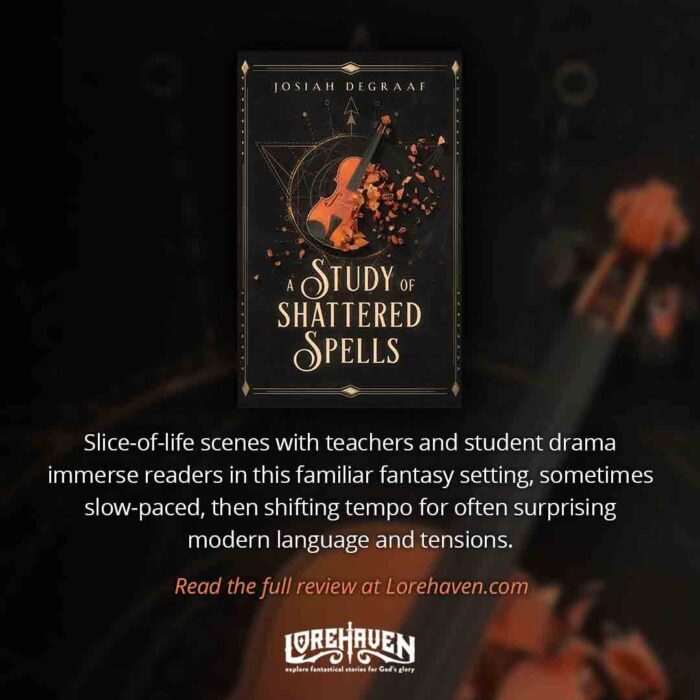118. Which Fantastical Stories Help Us Celebrate Human Life?
Podcast: Play in new window | Download (Duration: 1:17:37 — 72.4MB) | Embed
You might remember our promise to explore whether humans will colonize the cosmos before Christ returns. And we intend to fulfill that vow—at a future date. Really, we should have promised, “Unless, say, some big news happens between now and then.” Well, big news dropped on June 24. For more about that, see other podcasts! Today on Fantastical Truth, we will instead explore fantastical stories that celebrate human life.
Subscribe to Lorehaven
articles • news • library • reviews • podcast • gifts • guild
Episode sponsors
- Enclave Publishing: Arena (20th anniversary edition) by Karen Hancock
- Realm Makers 2022 conference
- See all podcast sponsors
Concession stand
- We still want to follow the spirit of the Lorehaven Guild code of conduct:
Beware of political issues. Some books and their Quests may naturally explore moral issues that relate to political conflicts. We encourage gracious discussion of these ideas and themes, as specifically related to the books. But members must avoid active discussion of specific political leaders, parties, or public policy.
- This issue, however, is not mainly about politics (that is, public policy). It’s moral.
- Scripture encourages believers to celebrate moments when justice is done:
When justice is done, it is a joy to the righteous
but terror to evildoers.—Proverbs 21:15
When the righteous increase, the people rejoice,
but when the wicked rule, the people groan.—Proverbs 29:2
- Some people have suffered trauma, abuse, or stress, and can’t (yet) celebrate.
- We also see Christians uncomfortable because some people still believe lies.
- Others try to be “more spiritual than God,” valuing evangelism over justice.
- In The Great Divorce, C. S. Lewis imagined a conversation with George MacDonald.
[Lewis’s character] “What some people say on earth is that the final loss of one soul gives the lie to all the joy of those who are saved.”
“Ye see it does not.”
“I feel in a way that it ought to.”
“That sounds very merciful: but see what lurks behind it.”
“What?”
“The demand of the loveless and the self-imprisoned that they should be allowed to blackmail the universe: that till they consent to be happy (on their own terms) no one else shall taste joy: that theirs should be the final power; that Hell should be able to veto Heaven.”
- In any case, this episode may not be best for you. Yet we will be positive.
- Finally, we’ll point to Christian-made stories as well as some secular ones!
Which fantastical stories best celebrate human life, unborn and beyond?
1. Christian-made fantasy, sci-fi, and supernatural stories
- Frank Peretti’s Tilly (1986) and Prophet (1992)
- A pregnancy plotline in the Left Behind series
- Cathy McCrumb’s Recorder (2021)
- Kerry Nietz’s Lost Bits (2022)
2. Secular-made fantasy and sci-fi
- Philip K. Dick’s short story “The Pre-Persons”
- Star Trek: The Next Generation: “The Child” (1988) and “The Measure of a Man” (1989)
- See also TNG: “The Inner Light,” and “The Quality of Life” (1992)
- Doctor Who: “The Rebel Flesh”/”The Almost People” (2011) and “Kill the Moon” (2014)
3. Honorable mentions
- Proxima and Ultima (2014) by Stephen Baxter
- The Island (2005 movie)
- Children of Men (2006 movie)
- The Terminator (1984)
- A Quiet Place (2018)
- Battlestar Galactica episode “The Captain’s Hand” (2006)
- The Dragon Prince (season 1, about preserving a dragon’s egg):
Com station
- Yes, we’ll take letters about this topic. What stories help you celebrate life?
Meanwhile at Lorehaven
- In the Guild, we’re finishing our June book quest into Lost Bits.
- We’ve announced our July book quest for George MacDonald’s Phantastes.
- As we’ve mentioned, see the site for retro reviews of Prophet and Tilly.
- We also reviewed Sara Ella’s new fantasy dystopian The Wonderland Trials.
Next on Fantastical Truth
In the months ahead, state leaders, especially in the United States, will probably focus more on human life. But what about supposed life that isn’t human? Yes, we’re talking about them aliens. Last May the U.S. Congress held a hearing about evidence for UFOs, or lack thereof. They had expert witnesses and non-revelations and subtle revelations and everything. In the future, will national leaders give us the revelation that popular science fiction assumes we’ll discover?


































In regards to how right to life themes get into secular shows, that probably happens partially because people tend to treat general ‘right to life’ themes as a separate category from abortion. In Tui T Sutherland’s Wings Of Fire series, for instance, unhatched dragon eggs are clearly valued as life, and listening to some people that have discussed the books, that attitude seems like it is shared even by some readers that would probably be pro choice to some degree. It’s probably easier for them to think this way since the eggs are completely separate from the mother at that point — kind of like how an infant is more easily regarded as a life once it’s born. If the female dragon was pregnant, however, and thus the eggs were still developing inside her, people would be more likely to view that pregnancy the same way they would a human one, abortion advocacy and all.
A lot of people don’t mind acknowledging the importance of freedom, family, choice and life. But they start to forget that if those things seem to make them miserable or get in the way of something else they believe is good and important. In the case of abortion, most people don’t mind regarding infants as a life worth protecting, and under normal circumstances would be biased toward seeing unborn infants as life that matters. But the dynamic changes in instances when people are forced to take on a burden that they didn’t want or that wasn’t their fault. Suddenly that thing becomes an enemy and a threat. If, for example, a woman becomes pregnant because she was raped, and after going to the doctor she finds out that there are complications with her pregnancy that will kill her if she doesn’t have an abortion, it would be very infuriating for her to hear a bunch of people telling her that she has to go through with the pregnancy anyway. Especially after already being traumatized by the rape itself.
In some instances, realizing this could be forced upon them is why some women react so viciously to anything that seems to threaten abortion rights. Some of them might even hate the idea of being pregnant at all and start to place hatred on infants and motherhood. And that resentment can manifest as them talking disrespectfully about unborn life.
I’m pro life with a couple of limits, and that’s a viewpoint that informs the stories I write, but I don’t shy away from the harsh reality of these situations, or the things that might cause a woman to choose abortion. We can’t solve problems like this if we ignore the complexities that go into it, so I try to explore these issues from multiple perspectives and situations.